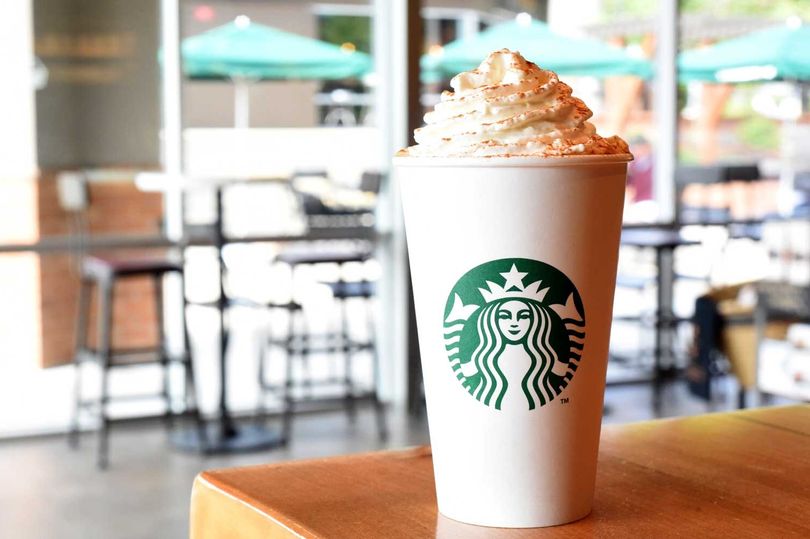Revealed: the sugar in consumers’ favourite autumn hot drinks
Starbucks’ pumpkin spice latte is back with the equivalent of 12 teaspoons of sugar — a dental expert weighs in
This year’s pumpkin spice latte from Starbucks contains the equivalent of 12 teaspoons of sugar, the same as a 500ml bottle of Coke or two Mars bars, according to study of food chain and cafe specials.
The findings, collated by UK dental supplier Kent Express, found that Starbucks’ pumpkin spice latte contains a third of your daily sugar intake – almost double the NHS recommended intake, which is 30g of free sugar a day. That means a person will have nearly reached their sugar limit with the first coffee of the day.
Pret’s pumpkin spice latte ranked the lowest for grams of sugar (23g) and for calories (167 calories compared with Starbucks 390 calories), indicating that it is possible for outlets to reduce sugar and calories without customers noticing.
Other sugary seasonal coffee contenders included Starbucks’ iced salted maple caramel latte (37g), Greggs’ pumpkin spice latte (28g) and McDonald’s salted caramel latte (25g).
Dr Kawther Hashem, a nutritionist and campaign lead at Action on Sugar, said: “Sugar not only lacks nutritional benefits, but eating – or drinking – too much of it leads to weight gain and raising the risk of Type 2 diabetes. Sugar is also without doubt a huge factor in tooth decay.
“It is therefore shocking that so many high street coffee chains are still wilfully putting their customers’ health at risk despite the government’s sugar reduction targets for sugary milk drinks in 2018. In our Festive Drinks Survey in December 2019 we found Caffe Nero’s Salted Caramel Hot Chocolate (Grande) made with skimmed milk contained nearly 15 teaspoons of sugar (59.6g) and 503 calories.
“An average person would have to do 90 minutes on the cross trainer to work this energy off!”
Last month, the UK was chosen to lead the new WHO Sugar and Calorie Reduction Network after progress with its domestic sugar-reduction programme. Professor Chris Whitty, the UK Government’s Chief Medical Officer, announced the formation of the network, which will work with countries across Europe to reduce sugar and calorie intake.
However, according to recent national dietary surveys, the average person in the UK (aged 19-64 years) is consuming just over a third more sugar than recommended, at 50 grams per day. There is clearly a long way to go before the UK becomes a shining example; the coffee giants must be forced to take action in reducing sugar and calories, especially in their seasonal promotions.
Chris Moffatt, dental expert at Kent Express, said: “We’re all getting more aware of our diets, and how they affect our physical and mental health. It’s shocking to discover just how much sugar there is in some seasonal drinks. Around 1 in 3 adults in the UK have signs of tooth decay, which can lead to more serious health problems.
“Everyone enjoys a treat now and again, but we need to keep our wellbeing in mind and consider healthier options. If you do indulge in a sugary drink, try to have it with a meal, use a straw if you can, and drink some water straight afterwards. Brushing twice a day with fluoride toothpaste and keeping up to date with your dental check-ups is also essential.”
Ravneet Panesar, Nutrition Coach at Neet Nutrition, commented on the effects high amounts of sugar in coffee have on the body: “When you consume a high volume of sugar, an insulin response is triggered in your body, higher volumes of sugar cause elevated blood sugar levels. Frequently elevating your blood sugar levels can lead to insulin resistance, which may lead to type 2 diabetes, weight increase, heart disease, tooth decay and some cancers.
The reason we have recommended consumption levels for sugar is because the human body is not designed to ingest large volumes of sugar. In extreme circumstances, you can experience hyperglycaemia, when blood sugars become very high or stay high for long periods. Mild episodes can subside on their own, but very high blood sugar can cause life-threatening complications. This is very much dependent on an individual’s unique response to insulin/blood sugar”.

Comments are closed here.